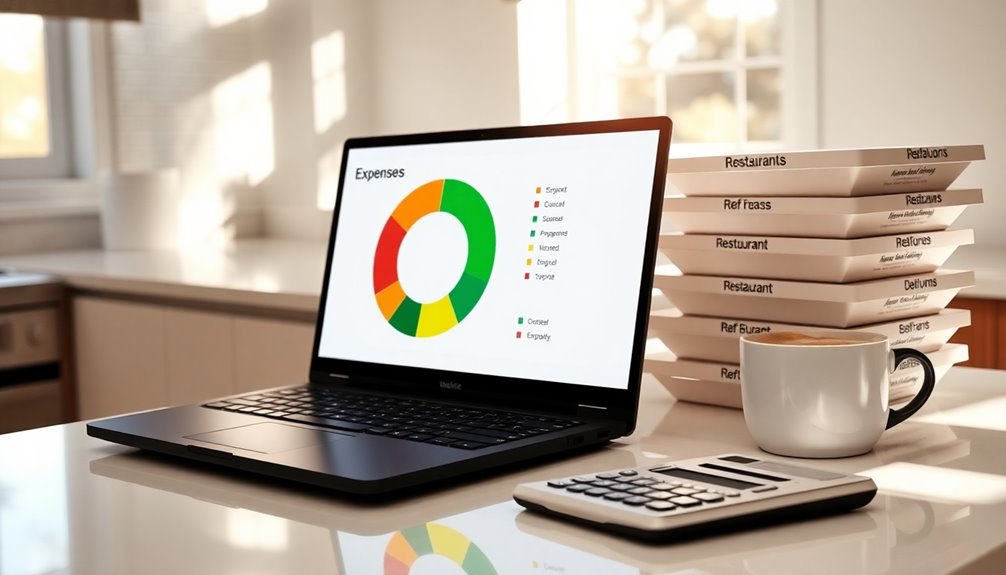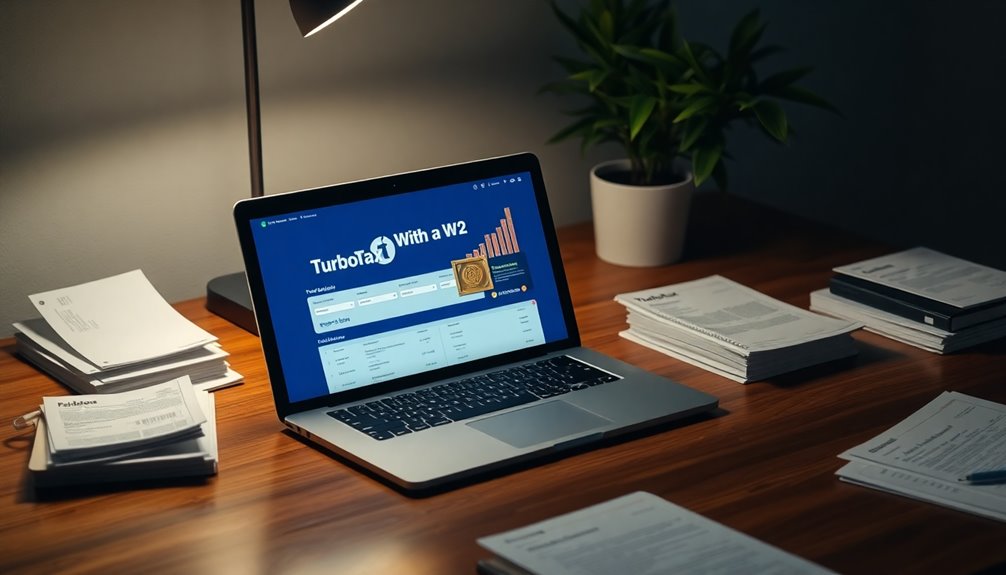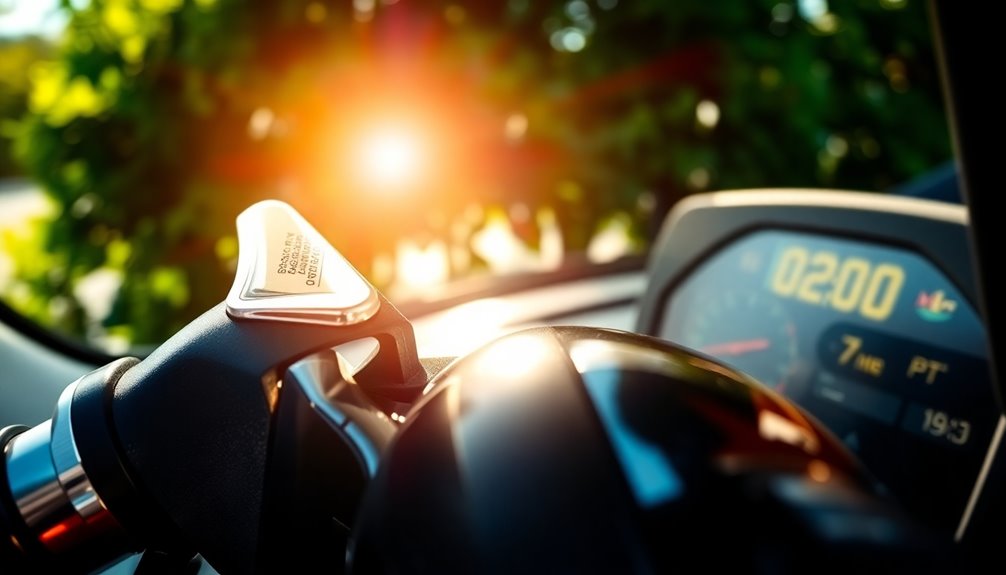DoorDash doesn't take out taxes from your earnings, which means it's up to you to handle your tax responsibilities. As an independent contractor, you won't see any federal or state income tax withheld. You'll need to keep track of your income and expenses and report everything on your tax return. If you earn over $600, you'll get a Form 1099-NEC to report that income. Don't forget, you might also need to make quarterly payments if you expect to owe over $1,000 in taxes. There's a lot more you should know to stay on top of your tax situation.
Key Takeaways
- DoorDash does not withhold federal or state income taxes for its drivers, known as Dashers.
- As independent contractors, Dashers must report their own income and pay taxes independently.
- Self-employment taxes, including Social Security and Medicare, are not withheld by DoorDash.
- Dashers receive a 1099-NEC form if they earn over $600 in a tax year, reporting non-employee compensation.
- It's crucial for Dashers to set aside earnings for taxes and maintain organized records for compliance.
Tax Withholding Overview
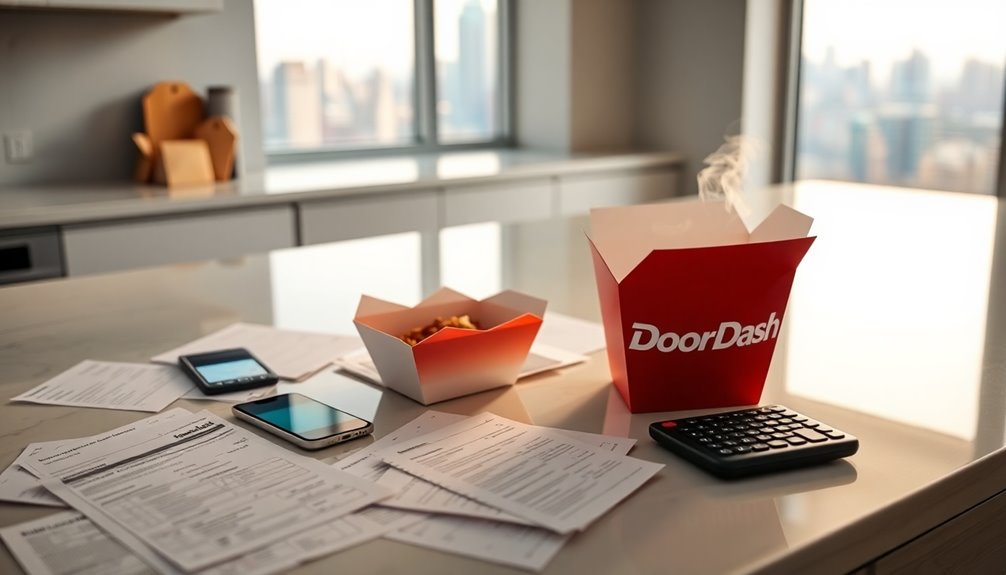
When you work as a Dasher for DoorDash, understanding tax withholding is crucial. Unlike traditional employees, DoorDash doesn't withhold federal or state income taxes from your earnings. As an independent contractor, it's your responsibility to report your income and pay taxes yourself. This includes not only federal and state income taxes but also self-employment taxes, as DoorDash doesn't withhold FICA taxes for Social Security and Medicare. To maximize your earnings, being aware of tax write-offs is essential, as it allows you to deduct business-related expenses from your taxable income.
To avoid surprises come tax season, it's wise to set aside a portion of your earnings for taxes. You should consider making quarterly estimated tax payments to prevent large tax bills and potential underpayment penalties.
Keeping track of your business expenses is essential for maximizing your tax deductions and minimizing your overall tax liability.
Failure to pay your taxes can lead to serious consequences, including penalties, interest, and even legal action from the IRS. Therefore, maintaining clear and organized records of your income and expenses isn't just a good habit; it's necessary for compliance with tax regulations.
Understanding 1099-NEC Forms
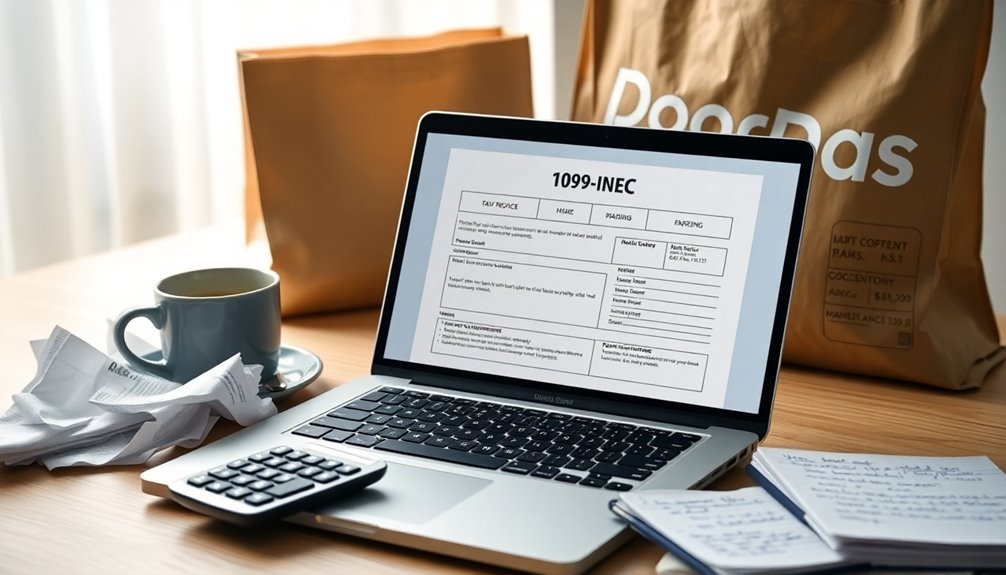
As a DoorDash driver, you'll likely receive a Form 1099-NEC at the end of the tax year if you earn more than $600. This form is crucial for reporting non-employee compensation, which includes payments made to you as an independent contractor.
The 1099-NEC was reintroduced in 2020 to separate these payments from the 1099-MISC, making it easier for you to understand your earnings. When you receive your 1099-NEC, it'll include your name, address, and taxpayer identification number (TIN), along with the business's information.
Box 1 will list the total amount you earned for your services as a DoorDash driver. It's important to note that employees receive a W-2 instead, so the 1099-NEC is specific to self-employed individuals like you. Additionally, the income reported on the 1099-NEC is subject to self-employment tax, which means you'll need to account for that when filing your taxes.
Self-Employment Tax Explained

Understanding self-employment tax is crucial for DoorDash drivers because it directly affects your earnings. As an independent contractor, you're subject to a total self-employment tax rate of 15.3%, which includes both Social Security and Medicare contributions. The Social Security portion is 12.4%, but it only applies to the first $168,600 of your income in 2024. The Medicare tax is 2.9% and has no income cap.
To calculate your self-employment tax, first, multiply your total net income by 92.35% to find your taxable income. Then, multiply that amount by 15.3%. For instance, if you earned $100,000, your taxable income would be $92,350, resulting in a self-employment tax of approximately $14,129.55. Half of the self-employment tax is deductible when calculating your income tax, which can help reduce your overall tax burden.
You must pay self-employment tax if your net earnings exceed $400 in a year.
Importance of Quarterly Payments

Accurate income tracking is vital for DoorDash drivers, not just for self-employment tax calculations but also for managing your quarterly tax payments.
As an independent contractor, you need to keep tabs on all income you earn from DoorDash, including delivery payments, incentives, and driver referral bonuses. This income must be reported on your standard tax return, Form 1040, and precise records are essential for calculating your quarterly estimated taxes. Additionally, it's crucial to understand that taxable income includes all tips received, which can significantly affect your total earnings.
Quarterly estimated tax payments are a requirement for self-employed individuals like you. These payments cover federal income taxes and are due on specific quarterly dates: April 15th, June 15th, September 15th, and January 15th of the following year.
If you expect to owe $1,000 or more in taxes for the year, the IRS mandates these payments. Missing them can lead to penalties and interest, which can add significant costs to your tax bill.
Tax Deductions for Dashers
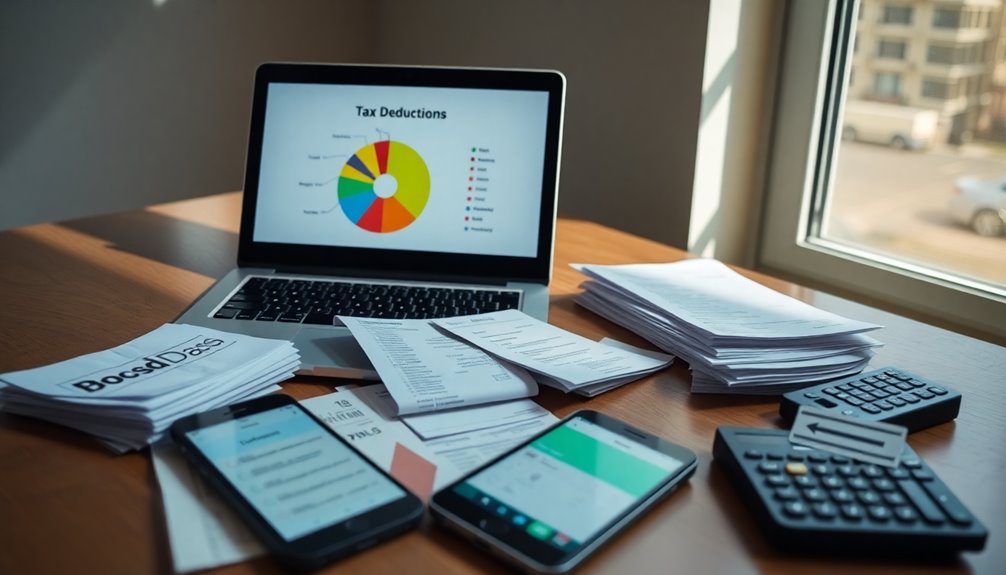
Tax deductions can significantly impact your earnings as a DoorDash driver. Since you receive a 1099-NEC form showing your earnings, it's essential to track your income and expenses accurately.
You'll report your DoorDash earnings on Form 1040 and Schedule C, which helps you calculate your taxable income by totaling your business income and expenses.
One of the most significant deductions you can claim is mileage, with a standard rate of $0.56 or $0.57.5 per mile, depending on the source. It's important to remember that self-employment tax applies to your earnings, which can also affect your overall tax liability.
Don't forget to account for parking fees, tolls, and vehicle maintenance costs. You can also deduct expenses for insulated courier bags, vehicle inspections, and repairs.
If you use your phone or internet for DoorDash, a portion of those bills can be deducted too.
Keeping precise records is crucial for maximizing your deductions. You can use apps to track work-related mileage and expenses.
Consider consulting a tax professional to help you navigate your specific tax obligations, ensuring you take full advantage of all eligible deductions.
Consequences of Tax Non-Payment

When you neglect to pay your taxes, you can face serious consequences that extend beyond just financial penalties.
First, the IRS imposes a failure-to-pay penalty, which ranges from 0.5% to 1% of your unpaid taxes each month, capping at 25%. If you also fail to file your tax return, that penalty jumps to 5% monthly, compounding your financial burden.
You'll receive collection notices within a month or two, and if you ignore them, the IRS can file a tax lien against your property. This means they claim your assets until your debt is cleared. Additionally, interest accrues on your tax balance at a rate of 8%, which can significantly increase the amount you owe over time.
Should you still not address the issue, they might escalate matters by seizing your assets or garnishing your wages.
Legal repercussions can be severe too. Intentional tax evasion might lead to criminal charges, potentially resulting in up to five years in prison and hefty fines.
Even at the state level, you might face license revocations. Simply put, the consequences of tax non-payment can spiral quickly, affecting your finances and future.
It's crucial to stay on top of your tax obligations to avoid these pitfalls.
Frequently Asked Questions
How Do I Calculate My Estimated Taxes as a Dasher?
To calculate your estimated taxes as a Dasher, start by estimating your total annual income from deliveries and other self-employment sources.
Subtract your business expenses, like mileage and maintenance, from this income to find your net earnings.
Apply the self-employment tax rate of 15.3% to your net income.
Don't forget to consider federal and state income tax rates based on your bracket.
Keep accurate records to support your calculations.
Can I Write off Food Expenses While Working for Doordash?
You can't write off food expenses while working for DoorDash.
Only expenses directly related to your delivery work, like mileage and vehicle maintenance, are deductible. Personal food costs don't qualify, so keep that in mind.
To maximize your deductions, track your business-related expenses accurately. If you're unsure about what you can deduct, consulting a tax professional can help you identify eligible expenses and ensure you're compliant with tax regulations.
What if I Earn Less Than $600 in a Year?
If you earn less than $600 in a year, you still need to report that income to the IRS.
Even without receiving a 1099-NEC form, all earnings must be included on your tax return.
Keep detailed records of your income and any business-related expenses, as you can still deduct those.
It's essential to file accurately to avoid penalties, so consider consulting a tax professional for guidance tailored to your situation.
Are Tips Included in My Taxable Income?
Yes, tips are included in your taxable income. When you earn tips while delivering for DoorDash, they get reported on your 1099-NEC form alongside your other earnings.
Since tips are considered nonemployee compensation, they're subject to federal and state income taxes, as well as self-employment taxes.
Make sure you keep track of all your tips and earnings to file accurate tax returns and avoid any surprises come tax time.
How Do I Keep Track of My Business Expenses?
To keep track of your business expenses, start by categorizing them into types like travel, supplies, and meals.
Use digital tools like expense tracking apps or accounting software for easy organization and automation.
Regularly document receipts and expenses, and maintain records in a cloud storage system.
Consider mileage-tracking apps for work-related travel.
Conclusion
In summary, DoorDash doesn't withhold taxes for you, so it's crucial to understand your responsibilities as an independent contractor. You'll need to manage your tax payments, including self-employment tax and potential quarterly payments. Remember to take advantage of any tax deductions available to you as a Dasher. Staying on top of your taxes can save you from penalties and stress later on. So, keep accurate records and plan ahead to stay in good standing with the IRS.
